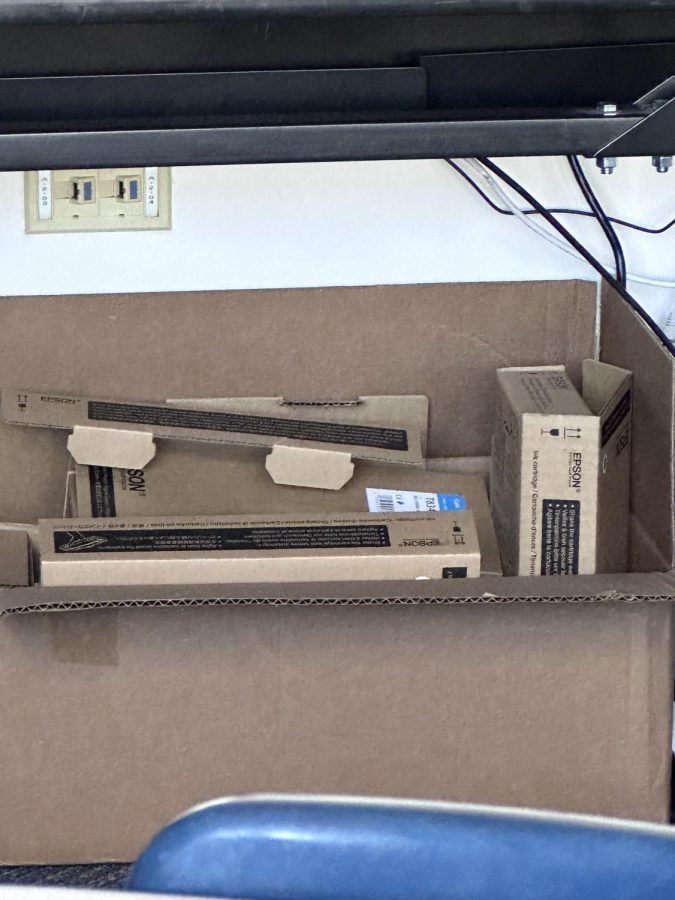The Nitty Gritty of What to Recycle Summed Up for You
May 18, 2023
Recycling is very important to our world and our atmosphere. It is important to our oceans and land, too much trash can cause too much harm to our environment. Though widely known, people often don’t like to recycle because it is “too much work” or “too much money”. I disagree. It isn’t too much money for a recycling can. Further delaying any type of climate help could hurt the economy even more than just buying a recycling can.
But, some question if owning a recycling bin is worth all the money put into it? Usually, on average a recycling trash can can range anywhere from $10-$170 per ton. Although, your city can sometimes give you one for free. On the other hand, trash cans can cost anywhere from $70-$200 per ton. So, in the end, you’re just spending more money on regular trash than splitting it in half with recycling, costing you less in the moment, because instead of using the trash can every week, splitting it into 2 with a recycling bin can take you to every 2-3 weeks without paying the $70-$200 per ton every week.
Some things that can be recycled-
- Soup can lids
- Paper envelopes, but not plastic padded envelopes
- Empty paper towel and TP rolls. No paper on them
- Newspapers
- Plastic shampoo bottles in most places, no pumps
- Milk jugs
- Printer paper, not shredded
- Brown packing paper as well as paper bags
- Cereal boxes
- Beverage cans
Some things that can not be recycled-
- Compostable utensils; compost them
- Candy wrappers, too small too plasticky
- Small electronics, take to an e-waste or transfer station
- Wood, A scrapyard, or waste management might take it
- Loose shredded paper, about 16% of places accept it if it’s bagged
- Ceramics
- Packing peanuts; shipping stores might take them
- Styrofoam, cardboard is fine
- Clothing, donate
- Animal pelts
- Plastic inflated packing bags or plastic envelopes
- Wire hangers; dry cleaners may take them
- Batteries, always a no
- Creamer cups, too small
Before putting them in the recycling bin, rinsing or even spot-cleaning items is good enough, hopefully only just the product container itself. “The cleaner the better, but items don’t have to be immaculate to be recyclable. If you rinse well, shake out the water, and leave less than a teaspoon of residual goo — roughly a bottle cap full — it’s fine,” according to The Washington Post. If you can’t get the gunk out of an item you want to recycle, throw it in the trashcan. You don’t want it in the recycling; it could attract bugs or animals or even ooze on other materials and ruin those materials and cause problems for the recycling process. There is no need to take off small and unnecessary items on the materials like staples or windows from envelopes or tape from boxes, although breaking down the boxes is necessary.
Here and down in Denver, there are a lot of ways to recycle, free or non-profit ways to recycle. Cherry Creek has a drop-off is a convenient and no-cost way to keep recyclables out of landfill. Denver offers what’s called an “E-Cycle Coupon” for other electronics for a discounted rate. They limit a coupon for each household each year. They state the resident must live in Denver County. Businesses, non-residents, of the city and county of Denver, and p.o boxes are not eligible.
Accepted Items
- TVs, monitors
- CPUs, laptops
- Printers, scanners
- Faxes, keyboards
- Mice, stereos
- External hard drives, storage devices
- Coffee makers, vacuums
- Toasters, blenders
- Cellular phones, telephones
- DVRs, VCRs
- Digital cameras, video recorders
- MP3 players, video game consoles
- Rechargeable batteries, sprinkler control boxes
- Wires, cables
- Other small appliances like microwaves
Recycling reduces the amount of trash that goes into landfills, using things that can be re-made into another product using left-over items from another product.

